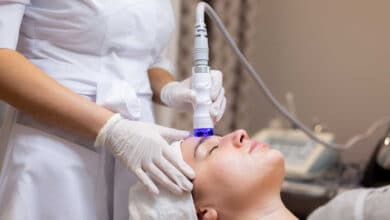What To Pack in Your Hospital Bag: What You’ll Need For Maternity and Baby Care

Thinking about having a baby soon? Are you preparing for your hospital stay? If so, then read on. Having a baby is one of the most exciting and memorable moments in anyone’s life. However, it can be quite overwhelming as well. As much as every woman wants to have a smooth and stress-free delivery, it does not always go that way. Since you can never predict when the little one will come knocking at your door, it is best to be prepared beforehand instead of panicking at the last minute.
Preparing for your hospital stay is essential not only to make things easier but also to ensure that both you and your bundle of joy are in good hands throughout the duration of your maternity and baby care period. Here’s the best things to prepare in your hospital bags for mom.
What to Bring to the Hospital
It is acceptable to make preparations for hospital bags for mom at the very last minute. However, because many people experience mental restlessness in the days leading up to the time of delivery, it is recommended that preparations be made as early in the pregnancy as possible, preferably before the 36th week.
It is more practical to divide your items into three different bags: one for labor, one for hospitalization, and one for discharge. When the time comes for you to give birth, you should bring only the bags that are designated for labor and hospitalization. You can ask your partner to bring the discharge bag to you while you are in the hospital, and you can keep the delivery bag by your side when you are giving birth to your child.
Bag for labor and delivery
Certificate of medical examination, mother-child handbook, necessary documents, pens, pajamas, slippers, wallet, face towel, smartphone and charger, plastic bag, drinks (1 or 2 500 ml plastic bottles), chopsticks, spoon, snacks, etc. as needed.
Hospitalization bag
Postpartum pads (approximately 5 sets), pelvic belt, skin care products, hair care products, toothbrush and toiletries, shower items, face towel, bath towel, handkerchief for nursing, cardigan, earphones, bag for dad to carry undergarments home, nail clippers, cash, plastic tote bag for showering, and other items.
Discharge bag
The baby’s coverall, swaddling garments, underwear, diapers, and infant nail clippers, in addition to the mother’s own clothes for discharge.
When it comes time to pack hospital bags for mom, you’ll want to double check that they contain everything you and your baby will require during your stay there. The staff at the hospital will be able to assist you with anything else that you might require. If you prepare for it in advance and have everything you need, you will be able to relax and concentrate on the task at hand, which is bringing your new baby into the world.
Prenatal Check-up Results
Packing hospital bags for mom is one of the most important things to do before heading to the hospital for the big day. This is something that any future mother knows to be true. However, what many expectant mothers might not realize is that the medical staff at the hospital are also searching those hospital bags for certain items.
Evidence of having a prenatal checkup is one of the most important things that the staff at the hospital looks for. An appointment with an obstetrician or gynecologist for the purpose of ensuring a healthy pregnancy is known as a prenatal check-up. This appointment takes place somewhere around the eighth week of the pregnancy in most cases.
The outcomes of the prenatal checkup are not only significant for the medical professionals working at the hospital, but also for the mother and the unborn child. Remember to bring these results with you to the hospital when you go in to give birth; it is important that you do not forget to do so. It is possible that the hospital staff will be unable to provide you and your baby with the appropriate care if they do not have them. Don’t forget to pack your pregnancy test results in the hospital bags for mom, and pack those important documents with extreme caution!
Staying Comfortable
Although it is a very rewarding experience, giving birth is a strenuous task that places a significant strain on the body of the mother. The most important step in “getting through labor” is to find ways to relax both your mind and your body.
The most important thing is to relax as much as possible until the cervix has completely opened. Even after you’ve moved into the delivery room, make it a priority to identify relaxation techniques that are effective for you and help you feel more comfortable.
How to pass the time while waiting to give birth
Take the Time to Eat
The process of labor takes quite some time. Building up one’s physical strength is the initial phase in the survival process. Eat regularly in between your labor contractions in order to keep your strength up.
Conversation is a great way to unwind.
Take advantage of the downtime to have enjoyable conversations with your husband, other members of your family, and the staff. This will invigorate you and assist you in unwinding and relaxing.
Walk, don’t sit stationary.
The baby is about to make its descent down the birth canal in the direction of the opening. Moving about and making use of gravity will speed up the process of giving birth and provide a boost to the baby.
Take some time to prepare the hospital bags for mom with the following items, since they proved to be helpful during the birthing process.
Cushion
In the event that you are having a difficult time while giving birth, you might use it to cling to it, lean on it, or hit it.
Drinking straws and bottles
When you want to drink something, even while lying down, using a straw is helpful because it is more convenient.
Fans
You can use a fan to cool yourself down in between contractions if you find that you are getting too hot while in labor.
Lip balm
It’s possible for your lips to get chapped and dry in the delivery room.
Socks
It made a difference to have them. When your feet are cold, the rest of your body will follow suit.
During labor, you can use it to wipe away your sweat, or you can even hold it when the pain becomes too much to bear. You can additionally apply aroma oil to it in order to alleviate the pain.
Breastfeeding Supplies
When it comes to making preparations for birth, it seems that there is almost never a circumstance in which a woman can say that she does not require a bottle or milk because she intends to breastfeed, or that she does not require a breastfeeding pad because she intends to use fully formula milk.
It is essential to make sure that you have access to at least some of the necessary supplies in order to deal with any medical emergency involving the mother or the baby. Whether you want to concentrate on breast milk or formula is, of course, a very essential question to ask yourself.
Because different maternity hospitals have different policies, you are free to choose the hospital that meets your requirements the best, or even if you have already chosen a hospital, you are free to let them know how you would like them to handle the situation after the birth of your child. This is because maternity hospitals have different policies. Talk things over with your primary care physician first.
Items that are helpful during breastfeeding, as indicated by more experienced mothers.
Nursing cushion
A regular cushion would work just fine, but breastfeeding sessions often last much longer than anticipated. To prevent unnecessary stress on the arms, it is recommended that you use a nursing cushion instead.
Nipple cream
Breastfeeding can cause a mother’s nipples to become sore, which is why many women choose to use this cream.
Breast milk pads
After childbirth, it is important to have breast milk pads on hand because breast milk may leak out even if the mother is not actively breastfeeding her baby. Checking things like the absorbency, texture, and breathability of the material is important.
Nursing clothes or shawl
When you are out and about, you should be aware that there may not be a nursing room available. It is a good idea to have nursing attire ready to wear or a shawl with you at all times so that you may nurse your child no matter where you are.
Baby Care Supply
Your baby will have most of the supplies they need at the hospital. Some birthing units require babies to wear hospital-branded onesies until discharge. It is okay to bring your preferred brand just in case you need it.
It is important to have cotton swabs and nail clippers specifically designed for babies, as opposed to those designed for adults. Handkerchiefs made of gauze, which are gentler to the touch than towel-style handkerchiefs, are the ones that come highly recommended.
- Gauze handkerchiefs ( 5 to 10 pcs)
- Swabs made of baby cotton
- Nail clippers for infants
- Thermometer
Skin Care Items for Babies
Babies have delicate skin. Skin problems appear not only on the face, such as drooling rashes, but also on the entire body, such as diaper rash and sweating. Prepare additive-free or hypoallergenic baby lotions and other products for when symptoms appear.
Bring Outfits for You and Baby
Begin preparing for the arrival of your kid by purchasing baby clothes such as underwear and outfits. You are going to have so much fun browsing through the cute tiny clothes for your little one.
Babies grow up quickly, so don’t buy too many clothes and prepare just the right amount.
- Short underwear … 3 to 5 pieces
- Long underwear … 2 to 3 pieces
What you need when your baby leaves the hospital
- Underwear for baby – 1 or 2 pieces
- Baby going home outfit – 1
- Disposable diapers – 2-3
- Baby wrap – 1 sheet
- Car seat – 1
*When driving a car with an infant under 6 years old, it is mandatory to wear a child safety seat.
What kind of clothes should you choose after giving birth?
The postpartum fashion refugee’s guide to choosing postpartum clothes will help you decide.
Breastfeeding should be easy with this outfit
Breastfeeding mothers need clothes that are easy to breastfeed in. Choose clothes with a front opening or a nursing opening so that you can breastfeed quickly.
A clothing that does not restrict movement and is comfortable to wear all day long
Taking care of a young child is a physically demanding task. When you are carrying your baby, nursing your baby, and providing care for your infant, ease of movement is very important. In addition, it is recommended that moms wear something comfortable so that they can unwind and focus on the task at hand, which is carrying their babies.
Even when dirty, it is simple to clean
The challenges of parenting a young child are present in every aspect of life. It is not uncommon for a mother’s clothing to become soiled as a result of her child’s drooling or spitting up. Because of this, we strongly advise opting for garments that can be readily laundered at home, even in the event that they become soiled. Wearing clothes that are easily removable and can be washed in a short amount of time will allow you to relax and enjoy your time even if they get dirty.
Conclusion
In my opinion, one of the most exciting aspects of being a mother is getting ready for the baby’s birth and putting all the required items in hospital bags for mom and the infant together. The fun and thrill of selecting stuff and the possibility that some people will go to extremes. But with the checklist that we put up, you won’t need to worry about anything and will feel more organized during the entire process, no matter how thrilled you get.
Also Read: Why Are Hoodies The Best Apparel For Fall From Nelk Boys Merch.




